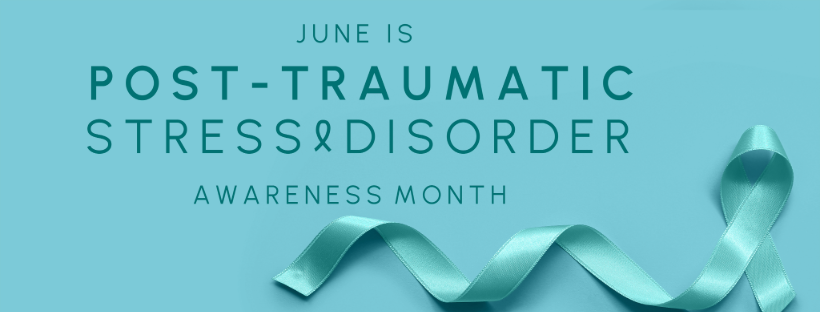Throughout the year, Partners in Prevention shares awareness blogs related to public health issues. Similar to when the government establishes official holidays, the value of designating official awareness months and days is the focused attention (and finances!) it can give to a particular issue.
This month’s focus is Posttraumatic Stress Disorder (PTSD). June 27th was originally established as PTSD Awareness Day by the US Senate in 2010 in honor of Staff Sergeant, Joe Biel who served two tours of duty in Iraq and later died by suicide. This awareness day was later expanded to include the full month in 2014 with efforts focused on funding, research, including diverse populations, reducing stigma, awareness, and marketing efforts. For more complete details of this history and development, link here.
So, What is PTSD?
PTSD is a mental health disorder that can develop anywhere from days to years after an individual experiences trauma. It is important to realize that while PTSD is often associated with intense and/or life-threatening experiences (i.e. accidents, combat, sexual assault, etc.), any direct trauma, witnessed trauma, or learning about trauma to others can result in the symptoms of PTSD depending on the individual impacted and their circumstances.
The incidence of PTSD is estimated between 8 and 12 million people worldwide, making it one of the most commonly experienced mental health disorders.

Assessment of PTSD
While it is important not to “diagnose” yourself or anyone else without the expertise of a mental health practitioner, knowing the signs and symptoms of PTSD can help people recognize the possible need for help. If someone is concerned about PTSD they may be assessed by a medical or mental health professional either via interview and/or self-report questionnaire.
If you or someone you know has been through a traumatic experience and seems to be struggling with the symptoms of PTSD, there are many effective treatments available. It is amazing how much improvement people experience even within a few weeks or months of care. Please contact your college mental health center, personal doctor, or counselor for further consultation.
Additional Resources for Information and Care:
- https://www.samhsa.gov/blog/posttraumatic-stress-disorder-awareness-month
- https://www.ptsd.va.gov/screen/
- https://www.nimh.nih.gov/health/topics/post-traumatic-stress-disorder-ptsd
- https://www.medicalnewstoday.com/articles/ptsd-support
Published June 10, 2024. By Anne Rulo, Author, Speaker, Therapist. www.annerulo.com. FB/IG/Twitter @annemrulo
